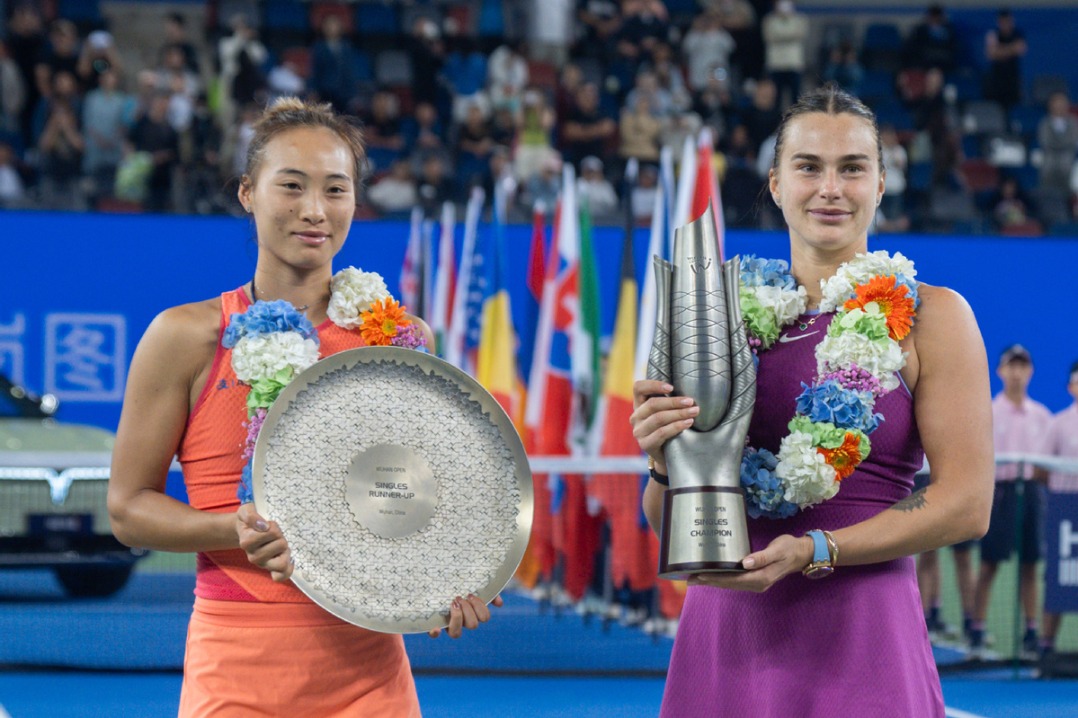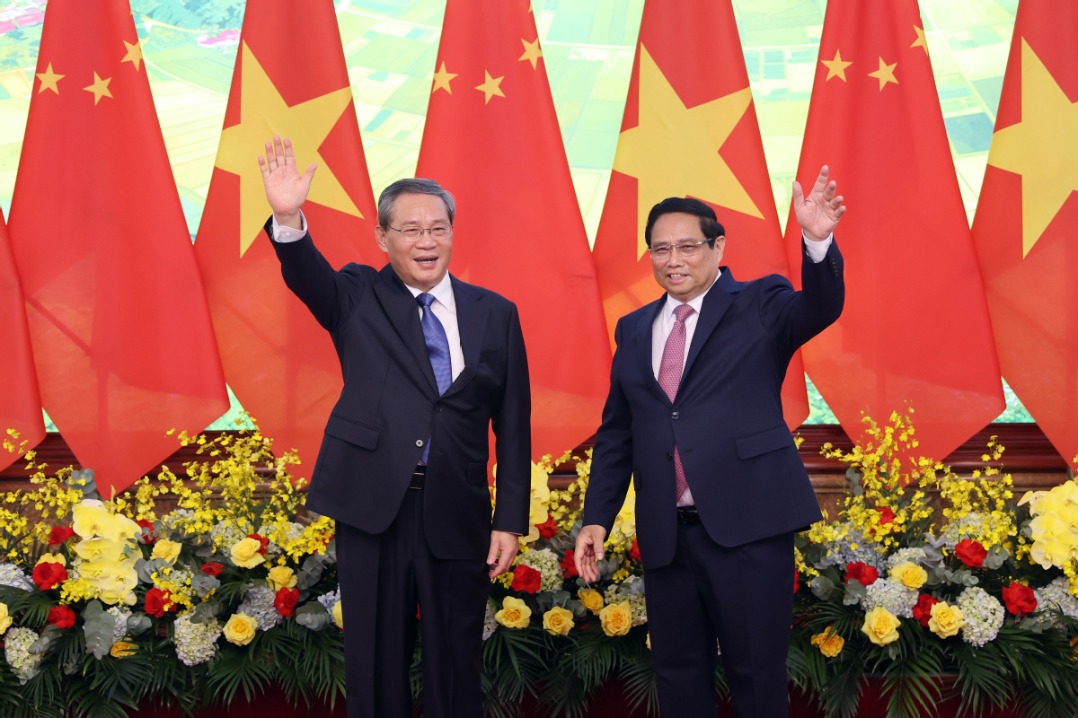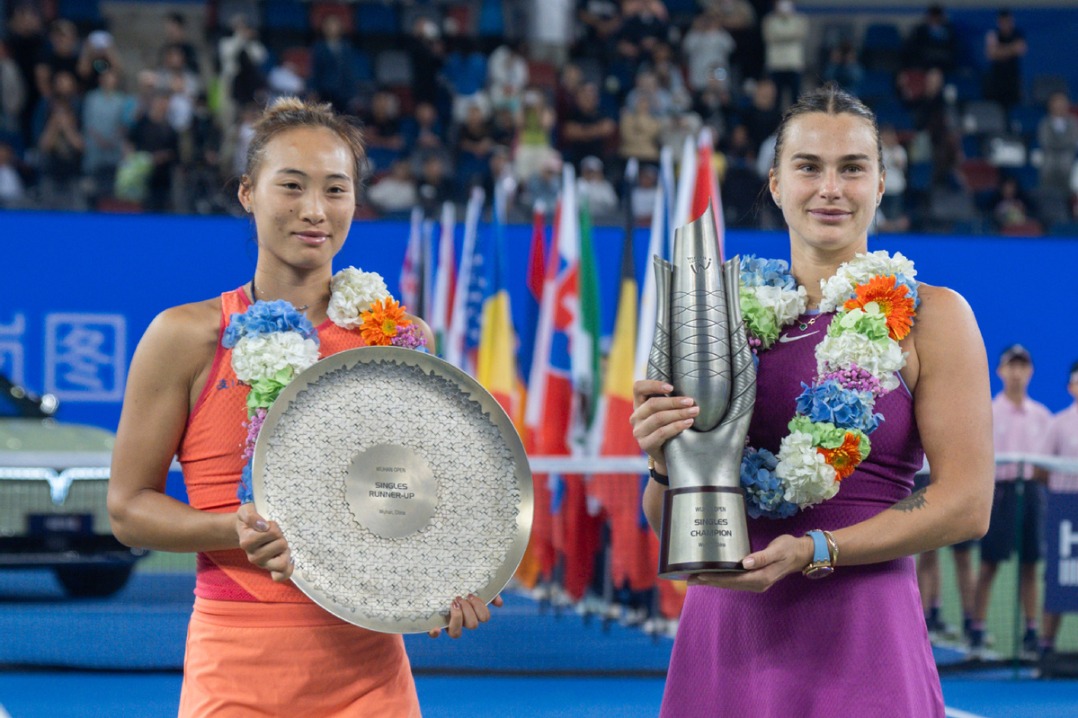All aboard


MA XUEJING/CHINA DAILY
FOCAC is a platform for Africa to embark on its modernization journey
Launched in 2000, the Forum on China-Africa Cooperation, as a platform for strengthening and promoting China-Africa relations in various fields, has created greater prosperity for Africa and continues to strengthen the partnership between the two sides.
Its launch and the implementation of its agreements have led to the construction of majestic infrastructure of all kinds in African countries that have benefited the African people, and the strengthening of close diplomatic, economic, commercial, cultural and health ties between China and African countries.
Examples of the two sides' cooperative achievements on the African continent abound.
In Senegal, where China is now the country's largest trading partner, China has made a major contribution to Senegal's opening-up, economic development, culture and sport.
The Ila Touba Highway, built by China, allows the Senegalese people to move around freely. The Grand National Theatre, the Museum of Black Civilizations, the Diamniadio Children's Hospital, the National Wrestling Arena — all, fruits of the cooperation between China and Senegal — contribute to the promotion of health, culture, art and sport in Senegal. Meanwhile, let's not forget the Foundiougne Bridge, the longest in West Africa, built as part of a partnership between China and Senegal, which is now helping to open up the department of Fatick and facilitate access to neighboring Gambia, while helping to sell fish products in the area and to other parts of the country. And it is always with pride and a deep sense of satisfaction and gratitude that I enjoy such high-quality infrastructure built in Senegal by China with unprecedented speed, and which today have an immense positive impact on my daily life and that of the people of my country, in general. Because they provide us with greater convenience, facilities and collective well-being.
At the very most, and to a large extent, thanks to the impetus of solidarity and shared prosperity on the part of China, many African countries have been able to benefit from numerous and diverse high-quality infrastructures as part of their cooperation with China.
China has contributed to Africa's economic and social development, building thousands of kilometers of roads, railways, airports, bridges, hydroelectric dams, industrial parks, stadiums, universities, schools and hospitals across the continent. It is now Africa's leading trading partner, and has been for over a decade.
What's more, in the space of over two decades, China-Africa trade has increased more than 20-fold, topping $280 billion to date. And more than 3,000 Chinese companies are now present in Africa, where they have invested more than $100 billion.
In short, China's support for African countries has helped advance African modernization. If this momentum is maintained, it will help to advance global modernization.
China also remains the African Union's leading partner in the implementation of Agenda 2063. And China stands by Africa and openly and strongly supports the continent within the United Nations and the various international bodies, defending African interests and working for a decisive place for the continent within international decision-making bodies.
China's policy of noninterference in the internal affairs of other countries and its foreign aid policy with little attached political or economic conditions are two of the practices that help to promote its cooperation with Africa and other countries around the world. A policy of cooperation that is also beneficial to developing countries, with whom China continues to identify by sharing their realities and remaining close to them. From this angle, the future seems to promise China and Africa, as well as the other developing countries of the Global South, a more prosperous and equitable partnership for the benefit of their respective peoples. This will certainly inspire the rest of the world, and clear up any misgivings about unfounded Western attacks and criticisms of cooperation between China and developing countries in general.
However, for more sustainable, inspiring and radiant cooperation, it will be even more advantageous for China and Africa to explore and deepen, within the framework of the FOCAC, areas of cooperation linked to technology, space, digital technology, telemedicine, the modernization of African agriculture with an effective transfer of skills in the construction of various infrastructures.
But also, and above all, China and Africa should develop and deepen environmental cooperation to better address the threats and challenges posed by climate change. And African countries can draw inspiration from China's ecological initiatives, in particular the promotion of clean and green energy through the development of green technologies. They can work with China to develop multilateralism within the FOCAC in order to better coordinate cross-border projects between countries.
China and Africa must therefore continue to work together, to engage in frequent dialogue through meetings such as the FOCAC, to move forward together and build a common language, specific to their orientations, visions and expectations, in order to better communicate and easily support their various development and research programs together, and also to better communicate on the difficulties and challenges they face, to better achieve their various objectives.
It is also clear that, over and above the infrastructural and material aspects, the strengthening of cooperation between the various countries that make up the FOCAC plays a decisive role in the relations of a more united, dynamic and open Global South. It also plays a role on the international stage, promoting a fairer and more harmonious global balance for the benefit of an inclusive, prosperous and balanced world. The FOCAC therefore plays an important role in a turbulent global context by promoting the modernization of the African continent, and sharing the dividends of the close collaboration between China and Africa with the world.
Faced with colossal environmental, economic, commercial, agricultural, industrial and health challenges, Africa and China must pool their efforts and strengthen their cooperation. And the FOCAC remains the primary platform for dialogue, proposals and assessment. It remains not only a means of vitalizing and deepening China-Africa relations, but also a means of helping Africa to emerge from the tenacious post-COVID-19 economic difficulties and of fostering the multilateral cooperation.
In short, the FOCAC, an excellent example of large-scale cooperation, will help to promote a spirit of sharing and solidarity that will benefit both Africa and China.
The author is a journalist at the Senegalese national daily newspaper. The author contributed this article to China Watch, a think tank powered by China Daily.
Contact the editor at editor@chinawatch.cn.
































